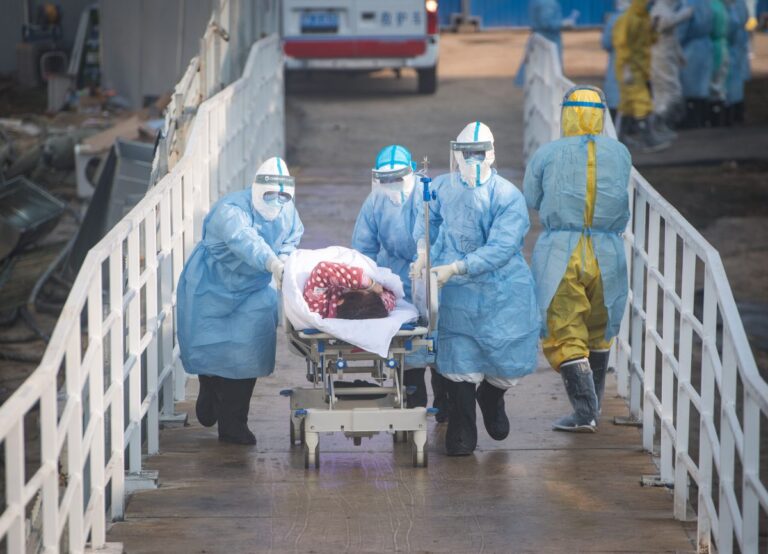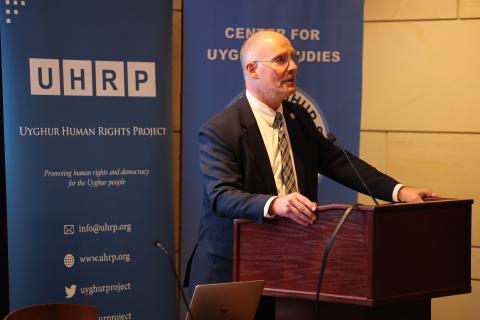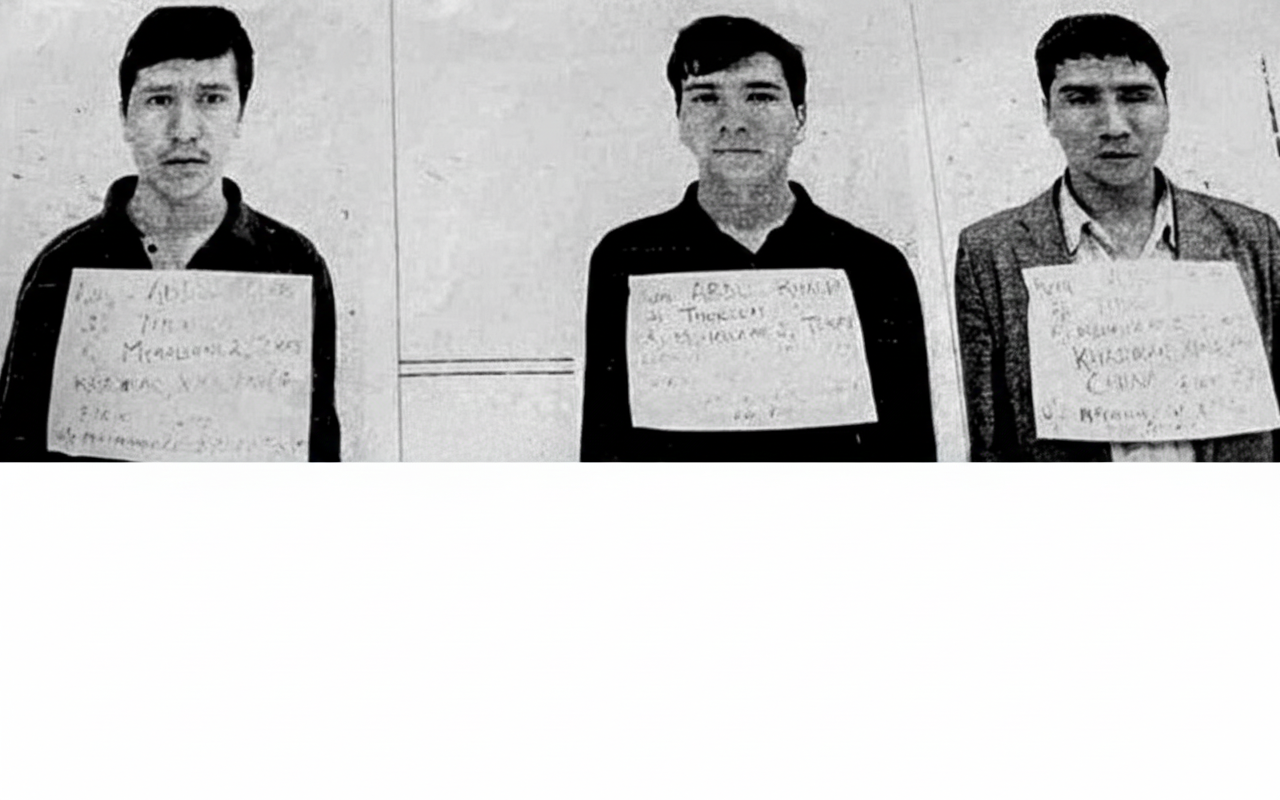
Image: DVTV
By Anne Kader
Dr. Enver Tohti is an Uyghur living in London and an oncological surgeon. Twenty-two years ago, he had decided to part-take in a British documentary titled ‘Death on the Silk Road’ to expose the adverse effects of Chinese nuclear testing on the health of Uyghurs in their homeland.
Interviewer: Dr. Tohti, what caused you to expose the effects of nuclear testing in 1998 that China was conducting in the Uyghurs’ homeland?
Tohti: It all started from a casual joke that my chief surgeon made. We both worked in a state hospital connected to the Railway Bureau. He pointed out that, out of forty hospital beds, the Han Chinese patients occupied thirty beds, whereas twenty-five percent (10) of the beds were for Uyghurs and Kazakhs. He implied that these ethnic groups appeared unhealthy.
I enjoyed my good social status as an oncologist surgeon in this hospital, and his claim upset me. I had always been proud of the brisk nomadic lifestyle of the Uyghurs and Kazakhs, many of whom were vibrant and physically fit. The senior sugregeon’s remarks had alarmed me.
The Railway Bureau that our hospital was part of had some 150,000 Chinese employees and five thousand workers from other ethnic groups. The number of Han Chinese employees was thirty times higher than the number of workers from other ethnic groups. Ten hospital beds were designated for 5,000 Uyghurs and Kazakhs, whereas 30 beds were for the 150,000 Han Chinese. The imbalance was alarming.
Because the hospital belonged to the Railway Bureau, it only treated railway workers and was closed to the general public.
Had the chief surgeon not cracked the joke, the abnormal ratio would have gone unnoticed. “Why did the other ethnic groups have far more cancer cases than the Han Chinese?” I asked myself. My brain became preoccupied with what I had discovered, which prompted me to start my investigation.
Interviewer: Was it public knowledge that China was conducting nuclear tests in your area?
Tohti: Yes, these tests were common knowledge. The Chinese media regularly reported on them by saying: “Our great country has successfully tested another nuclear bomb, and imperialist America will be scared to death.”
Interviewer: Had you, as an oncological surgeon, paid any attention to the effects of these tests?
Tohti: As this was not my exact field of study, it did not trigger my attention, nor did I connect the dots at the time. As I decided to dig deeper, I became alarmed. I worked in the central hospital of the Railway Bureau (there were four branches in ‘Xinjiang’) that received cancer patients from different parts of the autonomous region.
I studied more than two thousand cases, alas not in a very detailed manner. I gathered basic information such as where the patients had worked, where they lived, and what diagnosis they had. My research was limited, as I worked on it alone. The results, however, were enough for me to conclude: Four types of cancer topped the list: Leukemia, lung cancer, malignant lymphoma, and thyroid cancer.
The common nominator in these four types of cancer is that all four are often caused by radiation. I tried to find out why these four types of cancer were prevalent among many Uyghurs and Kazakhs. I returned to my medical textbooks and looked deeper into these different cancer types. Once radiation appeared as a possible cause, I immediately understood the connection. We all know that atom and nuclear explosions produce radiation.
I was terrified at my findings. The Chinese media had boasted about ‘the cutting-edge’ Chinese nuclear technology. Its atom and nuclear bombs supposedly would not damage the environment or people’s lives. How naive I had been to believe that nuclear weapons would not harm civilians. Their very purpose is to kill!
Interviewer: Did these nuclear tests take place in a particular location?
Tohti: When China does nuclear tests, they generally rotate the locations. They would never return to the same testing site but rather do the following test at least a hundred kilometers from the previous site.
The officials are said to have conducted nuclear tests in the Lopnur area. In reality, the testing site was not in Lopnur. In my opinion, Lopnur was a cover-up, while the actual location was at Bostan lake, which is very close to the town of Korla. The testing site falls between Lopnur and Korla. The location is much closer to civilian areas than the government had previously claimed. ‘Google Earth’, at least ten years ago, displayed all the nuclear testing sites, including those around Lopnur.

Image: Google Earth
Interviewer: How did you connect with Channel 4 News, and what were the risks of exposing your findings to them?
Tohti: I traveled to Turkey in December 1997, where I met with the Channel 4 journalist in February 1998. Six months later, I flew with them to ‘Xinjiang’.
Channel 4 News initially wanted to start shooting the documentary called “Death on the Silk Road” about the adverse health effects of nuclear testing in the Uyghurs’ homeland, in April 1998. The Gulf War unexpectedly broke out in March, and the crew had to relocate to another area to cover the war. The team decided to postpone the filming till after the conflict.
I knew how the Chinese authorities operate. In the following months filled with apprehension, I had trouble sleeping. I was worried about the consequences if I got caught. The project I was about to do amounts to treason which carries the death penalty in China. The tensity still affects me to this day. I have trouble sleeping in the dark, due to nightmares. Their reoccurring theme is that I get caught and imprisoned by China. I sometimes leave the TV on in the living room to keep the disturbing dreams away and prefer to sleep during the day. This alone has had a devastating effect on my daily rhythm during the last twenty-four years.
Interestingly, my nerves were calm while shooting the documentary. Before and after the project, my life was full of anxiety.
Interviewer: Did your Christian conviction compel you to expose the adverse health effects to the local population?
Tohti: I believe so. If I happen to witness something unjust, I should speak out. Otherwise, I would be guilty by association.
Interviewer: So, you became vulnerable to possible Chinese retaliation. Did China react after Channel 4 News aired the documentary?
Tohti: China did not react publically but rather discreetly. The documentary was aired in the UK in October 1998 on the same day as the then British Prime Minister Tony Blair started his visit to China.
Tohti eventually left Turkey for the UK in February 1999, where he has been living since.




